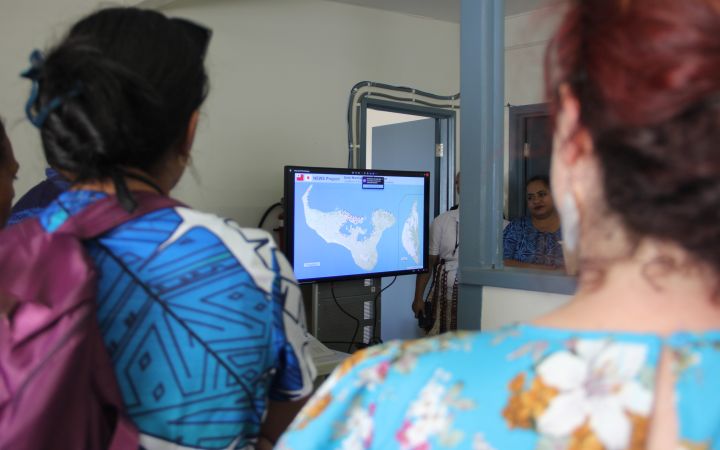Build resilience in the Pacific and empower people at risk to take timely and appropriate actions to help save lives and reduce the negative socioeconomic impact of climate-related hazards.
Every million-dollar investment in establishing early warning system in developing countries could save somewhere between USD 3.75 million to USD 20 million in damages each year. Yet, early warning system capacity in the Pacific region is still in its infancy. Pacific Island countries face inadequacies in data, technology and human capacity related to multi-hazard early warning systems. Relying on information and technical expertise from developed countries has proven catastrophic, especially when information is delayed – such as in sudden-onset disasters.
While the challenges in establishing effective early warning systems in the Pacific region are formidable, there are also opportunities to leverage technological advancements, foster regional cooperation, engage communities, enhance preparedness and improve responses through international collaboration.
“Leave No One Behind: Rapid Response to Climate Crises through Early Warning Systems” aims to provide individuals and communities in the Pacific Island countries with the knowledge and skills to effectively disseminate, monitor, analyse and respond to early warning signals for climate-related hazards and extreme-weather events.
By promoting more reliable and timely climate information and the widespread adoption of multi-hazard early warning systems, this programme will build resilience in the Pacific and empower people at risk to take timely and appropriate actions to mitigate risks and reduce the impact of disasters. Ultimately, it will help save lives and reduce the negative social and economic impact of climate-related hazards.
What I love most about the training programme is the incorporation of academic knowledge, traditional knowledge and community knowledge - bringing together an early warning system that reaches every member of the community at every single level." – Rebecca Tavioni, Cook Islands, UNITAR Early Warning Systems training programme participant
The programme is free for participants and will be run by the UNITAR Division for Prosperity with financial support from the Government and the People of Japan.
The programme is part of the Shimanami Collective initiative, a series of training programmes to build resilience against disasters and enhance sea and human security in the Asia-Pacific.
Programme Snapshot
Learning Objectives
Through the programme, participants will:
- Develop an appreciation for early warning systems for resilience
- Understand the different components and technologies of early warning systems
- Develop their understanding of multi-hazard early warning systems
- Develop an appreciation for Indigenous and scientific knowledge
- Learn through exposure to the technological advancements and research in the area of early warning systems in Japan
Programme Phases
- Phase I: Participants will engage in online training to learn about early warning systems for climate-related hazards and extreme weather events. Participants will complete self-paced online courses and join peer-to-peer discussions, assignments and webinars by regional and international experts in the field.
- Phase II: Top-performing participants from Phase I will be invited to an in-person training in Japan, consisting of study tours, lectures and discussions with Japanese institutions, private companies and entrepreneurs.
* Contents and location of the events may change.
Meet our alumni
- Savelinga Faʻoliu (Tonga): Integrating Tech and Community for Effective Early Warnings (2024)
- Rachel Nunn, Branson Pitakia and Alex Rilifia (Solomon Islands): Turning Learning into Action for Resilience: UNITAR Alumni Drive Inclusive Early Warning System in the Solomon Islands (2024)


